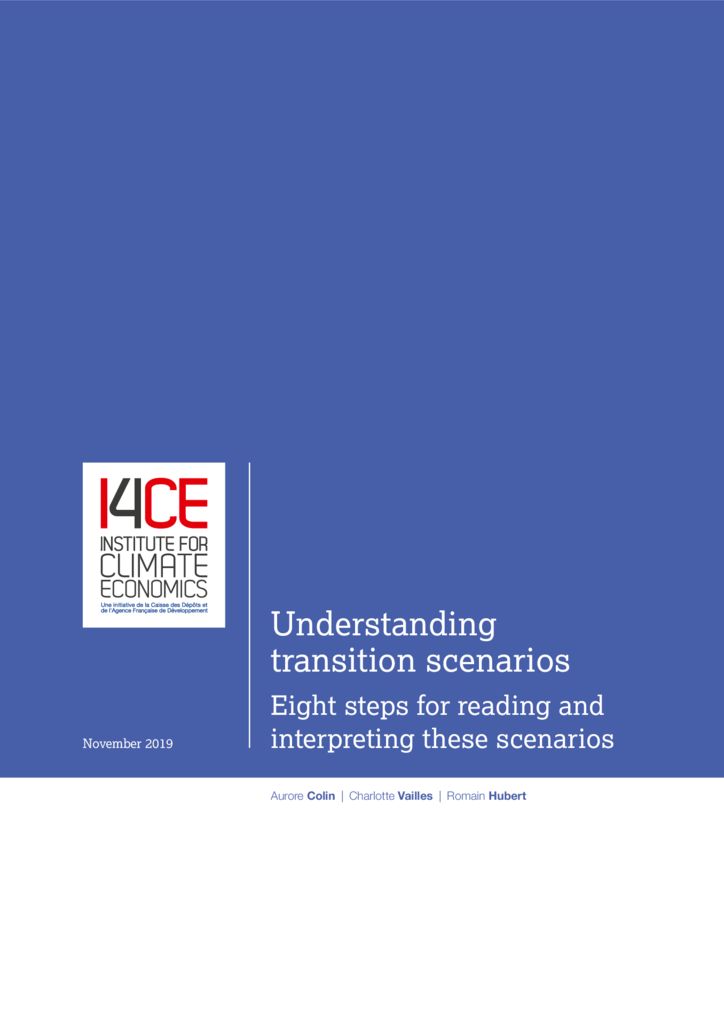Understanding transition scenarios – Eight steps for reading and interpreting these scenarios
It therefore brings risks and opportunities for economic actors, which they must anticipate in order to optimise their strategy in a context of uncertainty. Against this backdrop, the use of scenarios – which are plausible representations of uncertain future states – is very useful in order to better understand the medium- and long-term challenges of the low-carbon transition, and was in particular recommended by the TCFD (Task Force on Climate-related Financial Disclosures).
Before using scenarios, it is essential to know how to correctly interpret them. This implies first navigating the complex ecosystem of climate-related scenarios and identifying those that can be used to explore issues linked to the low-carbon transition: transition scenarios. It also requires fully understanding the issues relating to these scenarios.
The goals of this publication are therefore:
- Explaining the key concepts underpinning climate-related scenarios, presenting the main families of scenarios and the questions these scenarios help to answer;
- Providing keys to reading transition scenarios in order to facilitate their interpretation and to avoid misunderstanding.
A framework for reading transition scenarios was developed to provide readers with a step-by-step guide to scenarios. It summarises the eight main steps to follow in order to interpret a transition scenario according to the explanations developed in this study, and is applied to 5 publicly-available scenarios.
A project supported by Climate KIC:
More Information:





